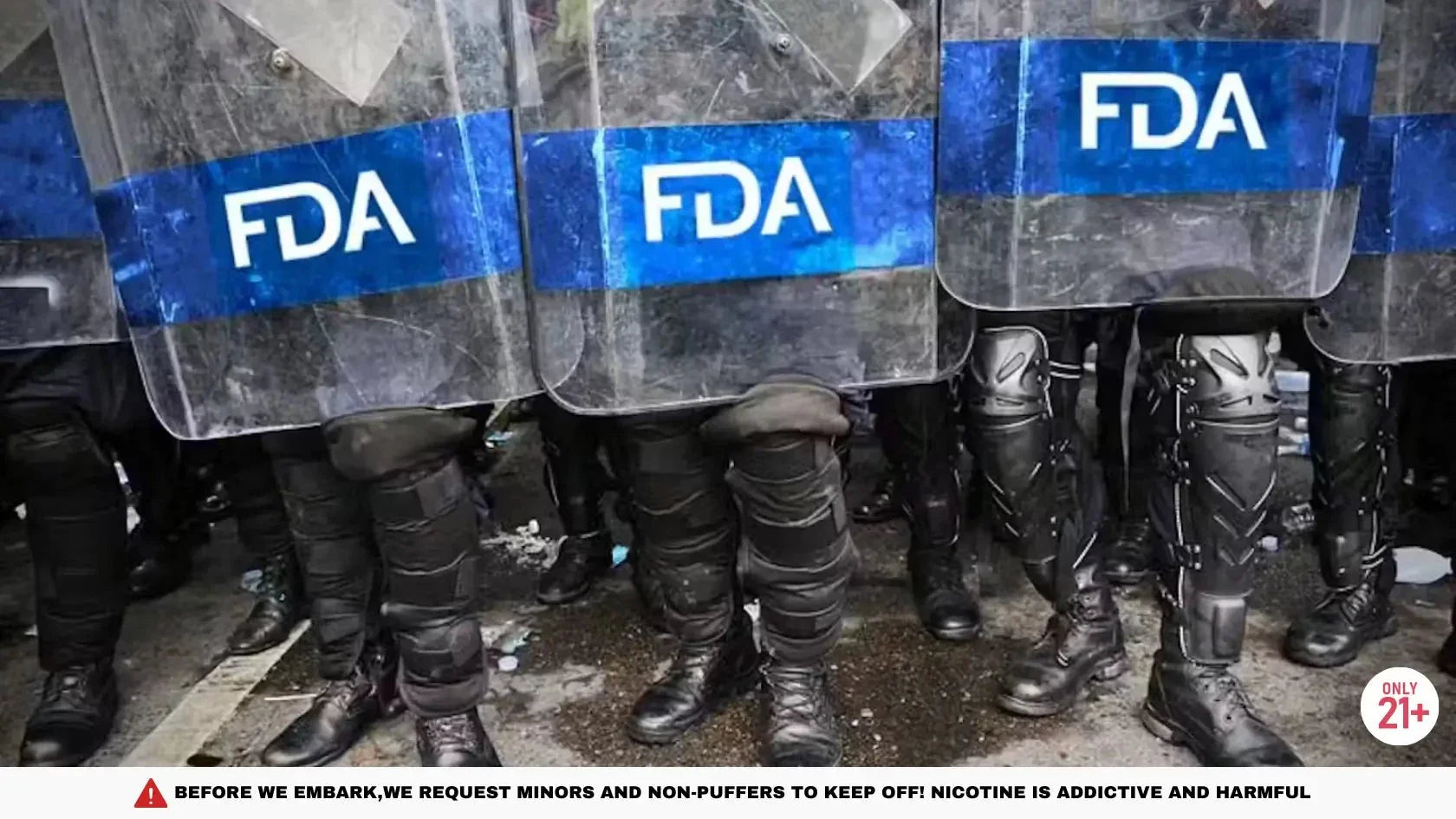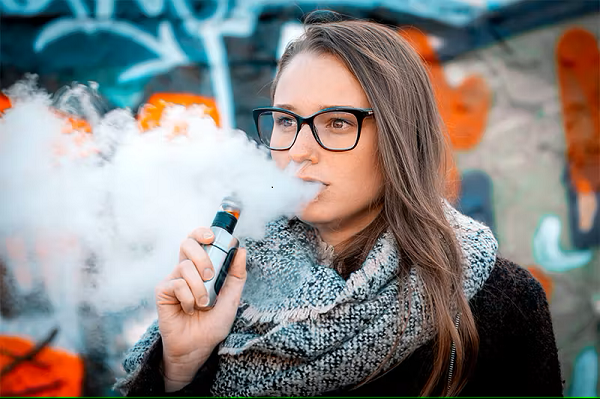The FDA today announced the creation of a "multi-agency task force" to clamp down on the sale of well-known vaping devices that have not gotten FDA permission, in a news statement that seems like it came straight out of the Drug War period. The targeted items are available online as well as in the majority of convenience stores, vape shops, and petrol stations.
The Federal Trade Commission (FTC), the U.S. Marshals Service (USMS), the U.S. Postal Inspection Service (USPIS), the Bureau of Alcohol, Tobacco, Firearms and Explosives (ATF), and the Justice Department (DOJ) will all be "enforcement partners" on the task force. The task force will be headed by the FDA.
"To coordinate and expedite efforts to bring all available criminal and civil tools to bear against the illegal distribution and selling of e-cigarettes responsible for nicotine addiction among American youth," reads the press release. The FDA states that other agencies could soon join the task group.
Of course, it's all about the kids.
"It takes a multifaceted approach to address the multifaceted issue of enforcement against illegal e-cigarettes," FDA Center for Tobacco Products (CTP) Director Brian King said. "This 'All Government' approach—which includes the formation of this new Task Force—will apply the federal government's combined resources and expertise to this urgent public health issue."
Acting Associate Attorney General Benjamin C. Mizer said, "Unauthorized electronic cigarettes and e-cigarette products continue to jeopardize the health of Americans—particularly children and adolescents—across the country."
Notwithstanding the fact that the number of young people who smoke and vape is falling, the federal government—headed by the FDA—continues to hide its intention to outlaw vaping behind worries about underage usage. Vaping among teenagers has decreased by more than 60% from its peak in 2019 and has reached its lowest point since 2013. Additionally, vaping has almost eliminated adolescent smoking.
Even if the rates of teenage vaping are down, the task force partners are still eager to erect barriers and apply handcuffs, much as they did during the Drug War.
The PACT Act is still on the minds of the feds.
It seems that the task force's primary focus will be on the shipping and online sales of vaping supplies. The Preventing Online Sales of E-Cigarettes to Children Act, enacted by Congress in December 2020, forbade the distribution of vapes via the United States mail (often referred to as the Vape Mail Ban) and included vapes in the 2009 Prevent All Cigarette Trafficking (PACT) Act.
Online vape dealers must register with the ATF, the U.S. Attorney General's office, state and local tax administrators in every state and locality where they conduct business, according to the PACT Act. A monthly list of all transactions, including the names and addresses of each customer, the quantities and types of each product sold, and the phone number, address, and name of the person delivering the shipment to the recipient, must be sent to each state's tax administrator. They must also collect and pay all applicable local and state taxes and affix the necessary tax stamps to the products sold.
These strict guidelines are supported by federal law, which imposes harsh criminal penalties that might involve hefty fines and lengthy jail terms.
It should be noted that the Preventing Online Sales of E-Cigarettes to Children Act is not limited to vape pens that contain nicotine. Its requirements apply to all e-liquid and cannabis oil vaping devices; nicotine and nicotine-free e-liquids; carts, liquids, and oils made from hemp and CBD; and any associated part, accessory, or component meant to be used in conjunction with those items.
Adhering to state tax requirements and the PACT Act may be costly and complex. However, the new task force may bring significant consequences to online businesses that float or disregard federal regulations on product shipment and tax compliance. Because of their careless shipping and compliance policies, a large number of online vape vendors have probably set themselves up for PACT Act action.
"One useful instrument for stopping the illegal online selling of e-cigarettes to minors is the PACT Act. ATF Director Steven M. Dettelbach said, "ATF looks forward to cooperating with other branches of the Department of Justice and USPIS to enforce the law."
Sellers of hemp and e-cigarettes on the internet should take this danger seriously.
The problem is that the FDA does not regulate products.
Head of the DOJ Civil Division Brian Boynton said, "The Justice Department is committed to enforcing the laws that prevent the sale and distribution of unlawful e-cigarettes." "We will use all of the enforcement tools at our disposal to address this crisis in close collaboration with our Task Force partners."
The fundamental problem facing the FDA is that the population that uses vapes prefers to purchase tasty e-liquids, easy-to-use disposable vapes, and efficient open-system devices over the seven awful devices that the FDA has approved (along with a few tobacco-flavored refills).
The FDA has not approved the sale of bottled e-liquids, high-capacity disposables, or vaping devices with flavors other than tobacco. Just a small portion of the vape industry exists in convenience stores (about 5%), and almost none exists in online and vape shop marketplaces. All of the items that the government has approved are either tasteless or underpowered.
The FDA gave the go-ahead for the vapes that are approved, all of which are produced by businesses controlled by Big Tobacco, primarily because very few people find them appealing. It is clear that the FDA has no intention of legalizing anything that people really want. Because of this intransigence, there is a growing gray market where genuine companies offer goods that the FDA may or may not consider to be lawful.
Since the hiring of current CTP Director Brian King two years ago, the FDA has not approved the sale of any vaping devices, and the massive crisis the agency is now facing is the result of King's and the FDA's obstinate decision to reject reality. Had the agency acted in the same manner as every other product regulator, it would have identified the qualities that 10–20 million American customers want in vape products, published safety requirements that need to be fulfilled, and overseen a well-regulated market that wouldn't need armed cops to keep up.
Rather of addressing the public's need for appealing and functional legal vapor products, the FDA is creating an enforcement task force and dispatching federal police forces to apprehend thousands of "outlaws" that the agency itself produced.






